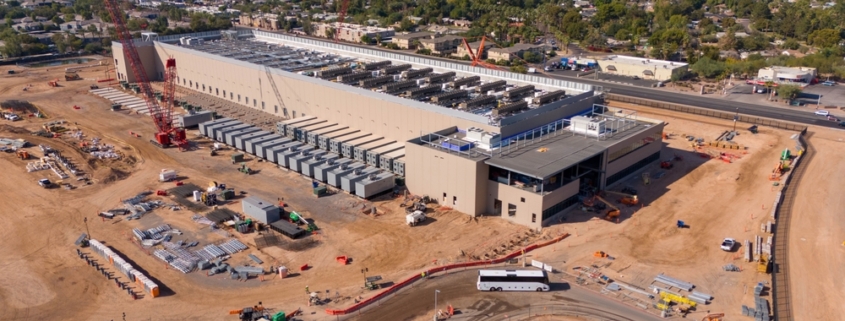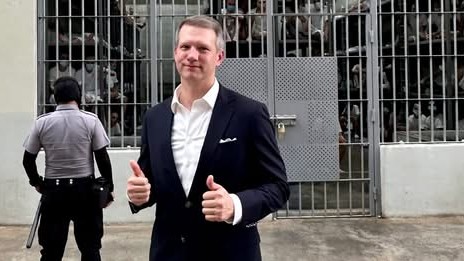ICE Has Violated America
Immigration and Customs Enforcement (ICE) is the hammer of the Trump Administration’s immigration policy. Public opinion is mixed on the policy, but not supportive of ICE methods. Whatever you think of the policy, ICE agents have behaved like the dreaded secret police of totalitarian regimes, and disgraced America in so many ways it is hard to count them.
ICE agents have outfitted themselves with paramilitary-style body armor and assault rifles, hidden their identity with masks and unmarked vehicles, interrogated and arrested people for their skin color or speech, invaded previously off-limits sensitive places like schools and courthouses, broken into homes without a judicial warrant, detained arrestees incommunicado for days, violated hundreds of court orders, and used aggressive tactics that resulted in the shooting deaths of American citizens. There is no daylight between this and the way totalitarian secret police have behaved.
Abusive Encounters and Arrests
ICE does not operate like a normal police force. ICE agents appear on the street out of recognizable uniform, in masks and unmarked cars. One federal case described what happened to a group of arrested immigrants:
Suddenly, four unmarked cars pulled up and surrounded [three individuals]. The cars were large and black with tinted windows and had no license plates. The doors opened and men in masks with guns started running at them aggressively. One of the men had a “large” military-style gun. The masked men wore regular clothes, they had no visible badges, and they did not identify themselves.
This type of encounter is all too frequent. It is terrorizing to the community and violates constitutional norms. Wearing masks prevents identification of ICE agents and undermines accountability for ICE misconduct. The ICE practice of using false license plates violates state laws.
The Fourth Amendment protects individuals, whether citizen or immigrant, from “unreasonable searches and seizures.” Whenever a police officer accosts an individual and restrains his freedom to walk away, he has seized that person.
An ICE agent may stop an individual only if he is aware of specific facts creating a reasonable suspicion that the individual is in the country illegally. Reasonable suspicion as to one person does not exist if the facts also apply to a very large category of presumably innocent people. But at the direction of White House advisor Stephen Miller, arrests of targeted individuals have given way to sweeps of areas where undocumented immigrants might be found. ICE is arresting thousands of people with no reason to target them.
ICE now engages in racial profiling. In Los Angeles, immigration officers made stops based solely on one or more of these factors: (1) presence at particular locations such as bus stops, car washes and day laborer pickup spots, (2) the type of work done by the individual, (3) speaking Spanish or speaking English with an accent, and (4) apparent race or ethnicity. Two lower federal courts ruled that relying solely on these factors violated the Fourth Amendment because they could not create “reasonable” suspicion, given that many innocent people would meet this description.
Invading Homes and Other Sensitive Places Without Warrants
The Fourth Amendment prohibits government entry into a person’s home without consent or a warrant issued by a neutral judge. Yet ICE has apparently issued an internal memo authorizing agents to enter private homes with only an administrative warrant issued by an ICE officer and to use force in doing so. This has led to outrageous ICE conduct, such as forcing open the door of the home of a U.S. citizen in Minnesota without a warrant, and arresting him at gunpoint.
In 2021, the Biden Administration issued guidelines prohibiting immigration enforcement in or near sensitive “protected” areas — where enforcement might restrain public access to essential services or engagement in essential activities. These included (1) schools, (2) medical or mental healthcare facilities, (3) places of worship or religious study, (4) places where children gather, such as a playground or daycare center, (5) a social service agency, and (6) a place where there is an ongoing parade, demonstration, or rally.
The Biden policy was sensitive and sensible. It recognized that there are more important factors in the overall policy balance than capturing and removing undocumented people. But the Trump Administration disagrees. It rescinded the Biden policy.
Unlawful Detention and Violating Court Orders
The Fifth Amendment secures due process to immigrants, lawful or not. Immigrants have been arrested along the West Virginia Turnpike, and elsewhere in West Virginia, and then detained in state jails without a hearing, or even notice of when a hearing might be held. The U.S. District Court in Charleston held in such a case:
In our society, freedom is the constitutional default. When the Government confines a person in a jail and, when called upon, cannot articulate the facts or authority justifying the confinement, the detention violates the Fifth Amendment. Habeas corpus exists precisely for this moment.
The detained individuals in that West Virginia case and two others were released.
On January 28, 2026 a top federal judge in Minneapolis stated that ICE had violated nearly 100 court orders in January alone, more than some other federal agencies have violated in their entire existence. These cases were habeas cases in which a person arrested by ICE was challenging his detention, as in the West Virginia cases.
The situation in Minnesota is not unique. Judges across the country have rebuked ICE for violating court orders, improperly relying on discredited legal theories and violating their obligation of candor to the courts. The extent of these practices suggests a conscious pattern of disrespect for the rule of law.
Unrestrained Violence
The online journal The American Prospect reports that ICE has killed eight people and injured nine around the country. The ICE shooting deaths of Renee Good and Alex Pretti in Minneapolis have received plenty of coverage. DHS and ICE immediately accused the victims of being terrorists intent on harming ICE agents. Thanks to citizen videos, we can see with our own eyes what happened. ICE agents were trigger-happy when they were not threatened at all. Their deadly violence has not even received an investigation, much less official restraint or accountability.
We are lucky more people haven’t died from ICE violence. It is everywhere. ICE uses chokeholds and agents kneel on the necks of detainees. They swing batons, smash car windows, and shoot into occupied family vehicles. Simply fleeing from an ICE agent does not justify that person’s assassination.
ICE in West Virginia
Not only is ICE operating in West Virginia, our state government and local police are eagerly cooperating with the agency and boasting about it. In February 2025, the West Virginia National Guard and the state police signed up to cooperate with ICE in enforcing immigration law – for the first time in our history. Governor Morrissey declared himself deeply committed to the project.
This cooperation has led to the arrest of 650 individuals in West Virginia. Some of these people were just passing through on the Turnpike. Others in Nitro, Charles Town and Nutter Fort were arrested at their restaurant jobs. Governor Morrissey claims that among those arrested were several with criminal histories, but the vast majority were simply people whose immigration status was questionable, which is not a crime but instead a civil offense like a traffic ticket.
After two of her employees were arrested at Taqueria Lou Lou in Nutter Fort, the owner said, “These men were not ‘bad guys.’ They came to work, did their job and went home. No drugs. No drinking. No kidnapping kids. No horror story. Just people.”
The Objective Doesn’t Justify These Means
In his January 31, 2026, order releasing 5-year-old Liam Ramos from ICE custody, Judge Fred Biery said
Observing human behavior confirms that for some among us, the perfidious lust for unbridled power and the imposition of cruelty in its quest know no bounds and are bereft of human decency. And the rule of law be damned.
We seem to have lost our balance and judgment. Ridding our country of undocumented foreigners, even criminals, is not a national goal – it is simply a campaign promise made by Donald Trump. Keeping that promise is not worth killing innocent people who oppose the policy or get in the way. It is not worth trashing the Constitution. It is not worth terrorizing our communities. It is not worth selling our souls.






